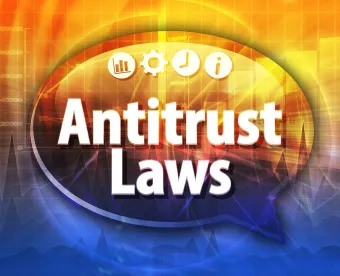In the midst of the ongoing global effort to mitigate the effects of COVID-19, the Directorate-General for Competition (DG Competition) of the European Commission (EC) and the EU courts are taking measures to prevent the spread of the virus among individuals whilst at the same time seeking to ensure that the EU economy remains as stable as possible. The situation remains highly fluid for the foreseeable future. Companies are therefore urged to stay abreast of the continually changing measures being taken.
WHAT HAPPENED
EC Staff working on “non-essential” projects are working remotely from home. However, officials who hold “critical” functions, such as the Commissioner, the Director-General and Heads of Unit, will generally be present at DG Competition, although working on a shift basis. In-person meetings will be replaced by video conferences going forward. DG Competition staff who are dealing with the provision of State aid exemptions during the crisis are being considered “critical”.
Merger Control
- High-level meetings with executives and state-of-play meetings will likely be affected by the switch from in-person to video meetings.
- A postponement of merger notifications, where possible, is encouraged. The rationale behind such measure is that the EC will clearly have difficulties within the statutory deadlines imposed by the EU Merger Regulation to elicit relevant information from third parties, such as customers, competitors and suppliers. In addition, the EC will likely face limitations in accessing information on a remote basis.
- In terms of the practicalities pertaining to the filing/review procedure:
- Hand deliveries at the Merger Registry are possible, but are currently discouraged.
- DG Competition will temporarily accept submissions that are made only in digital format, either electronically by email to the Merger Registry or through the eTrustEx system with the delivery of paper originals to be arranged at a later stage.
- Phase II Hearings will likely take place in person (although it is difficult to see how this can be reconciled with the ongoing measures to mitigate health and safety concerns)
State Aid
- Measures designed to bail out companies that are heavily impacted by COVID-19 will likely receive swift State aid approval given the “exceptional circumstances” surrounding the grant of such aid. In particular, airlines, banks, companies active in the tourism industry and event organisers have been singled out as appropriate candidates for the expedient receipt of public support. The recent 24-hour EC approval of aid to Danish event organisers bears testimony to this possibility.
- A dedicated hotline has been set up by DG Competition to efficiently deal with meeting the new swift State aid approval procedure
- Where appropriate, DG Comp will make exceptions to the “one time last time” principle, pursuant to which a company cannot be a repeat beneficiary of aid within 10 years.
Court of Justice Judgments
- Court of Justice of the EU (ECJ) hearings have been postponed. In particular, all ECJ hearings that were scheduled between 16 and 27 March are postponed, while all hearings in the General Court (GC) until 4 April are postponed.
- The ECJ will still hand down the judgments scheduled for this week and next, on Thursday 19 March and Thursday 26 March. All scheduled GC judgments will be delivered on 26 March and 2 April.
WHAT THIS MEANS
- Companies currently finalising negotiations on transactions are urged to bear in mind that the EC is currently strongly encouraging merger filings to be put on the back burner for the time being.
- If a merger control filing is made, it cannot be ruled out that the EC will not be as swift as usual in giving its approval—although, of course, it will have to decide within the statutory deadlines imposed by the EU Merger Regulation. It is noted, however, that the EC may make increased use of the “stop-the-clock” mechanism to push back these deadlines. Corporate documentation imposing deadlines for completion may therefore have to be amended.
- Companies severely impacted by COVID-19 are encouraged to contact legal counsel with a view to assessing whether they can benefit from a swift financial bailout. This applies particularly to airlines, banks, hotels, etc., and event organisers affected by unforeseen cancellations.
- Companies eagerly awaiting judgment in cases in which they are involved will have to sit tight. These include appeals regarding antitrust fines imposed by the EC, as well as challenges by third parties against EC merger approval decisions.
- With non-essential travel discouraged, it remains to be seen what impact the new EC measures will have on cartel dawn-raids.




 />i
/>i
